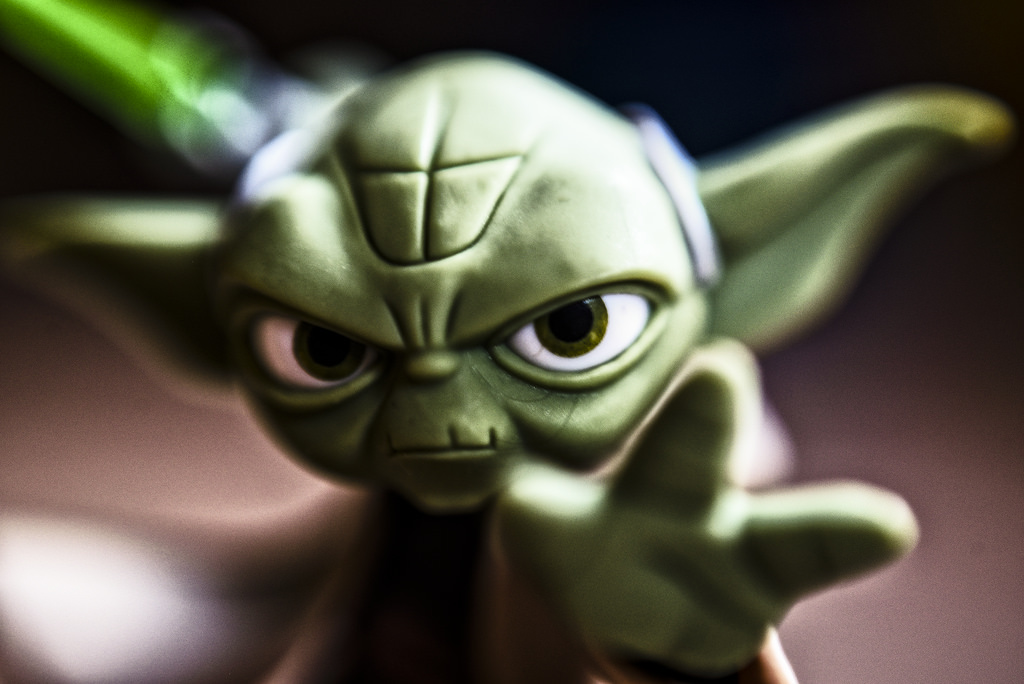 Do you remember that moment in Star Wars where Luke learns how the Force works? That fantastic feeling of ease and elation that just went from screen to yourself – “everything is possible now”. Well, this post won’t teach you how to do that. But if you figure out how to use the three processes I’m describing below, and if you manage to apply them to the things you are learning – perhaps you’ll soon be able to say “everything is easier now” – without actually doing much more yourself.
Do you remember that moment in Star Wars where Luke learns how the Force works? That fantastic feeling of ease and elation that just went from screen to yourself – “everything is possible now”. Well, this post won’t teach you how to do that. But if you figure out how to use the three processes I’m describing below, and if you manage to apply them to the things you are learning – perhaps you’ll soon be able to say “everything is easier now” – without actually doing much more yourself.
I’m going to describe each of the processes in turn, and give you just one example of how it can work. These are not new – sociologists and psychologists have been studying them for a long while now. I’d love to hear how you rely on them in your work!
1. Procedural memory
If you’re interested in psychology, you may already know some facts about memory – how we’re likely to forget things, how often to revise stuff, and so on. Perhaps you were even inspired by some memory masters. But did you know that not all memory works that way?
Procedural memory is the memory of how do perform certain actions, go through habitual movements, and move from one step of the sequence to another. Some of it is sometimes referred to as “muscle memory” – it’s a more confusing term, but it does suggest that your memory of how to do a certain repeated action is seated deep in you – leading people to believe that their body “remembers” how to hold an instrument or throw a three-point shot.
Procedural memory is good news. You may forget names, dates, appointments – these go into other types of memory, and as old age approaches, they become its first victims. But procedural memory can hold out for longer. Also, when learning, these are the things you can remember first, and use the resulting boost in morale to re-learn more.
Here’s a quick example: I haven’t practised guitar for ages, and forgot most of the songs I used to play. But I can still pick up a guitar and play the five most basic chords. This is my procedural memory, this was my everyday practice – and now it remains.
Read more on procedural memory by following this link.
2. Peer pressure
This is not only related to teenagers – everybody has their Joneses to keep up with! Most of the time, this is not perceived as a positive thing. But every now and then, peer pressure can be a motivation to do better.
In an experiment on a group of teenage learners, researchers were able to show that their subjects learned more, took more risks, and explored their learning subject more bravely when they knew that their peers were watching. Anyone who picked up their game as soon as they saw their friends watch them on the court, knows what this is about…
Peer pressure is another one of those things that you don’t really need to work on. The most important thing you can do is choosing your peers for what you’re about to learn: if you manage to find and set up a tribe of people who are after the same thing, and are able to support each other while they’re learning, then you’re on to a winner.
To read more about peer pressure, follow this link.
3. Gamification
There are some who believe that the whole idea of gamification is just not worth exploring. And there are others who are convinced that gamifying learning is the best new thing we can do.
I am in between, when it comes to gamifying things you learn. But I know this much: peer pressure works in games, too (you’re keen to do better than others, the moment you see their scores). And things can get gamified way more easily now (because we’ve got portable electronic devices with us everywhere). So there’s a lot of gamification potential out there – and people seem keen to take advantage of that.
It’s a force that’s hard to ignore. Watching your friends beat you in Duolingo leaderboards, or seeing your colleague do a Strava segment in good time – those things motivate you to keep trying. The best thing to do is probably to choose how much of your work is to turn into a game – and not to let it overrun your learning completely.
Click here to learn more about gamification.
Photo Credit: _.Yann Cœuru ._ Flickr via Compfight cc
Wiktor (Vic) Kostrzewski (MA, DELTA) is an author, translator, editor and project manage based in London. When he works, he thinks about languages, education, books, EdTech and teachers. When he doesn’t work, he probably trains for his next triathlon or drinks his next coffee.
BRAVE Learning (formerly known as 16 Kinds) is a lifelong learning and productivity blog. If you enjoy these posts, please check out one of my books and courses.
My recent publications, and my archive, is now all available on my new project: PUNK LEARNING. Hope to see you there!

